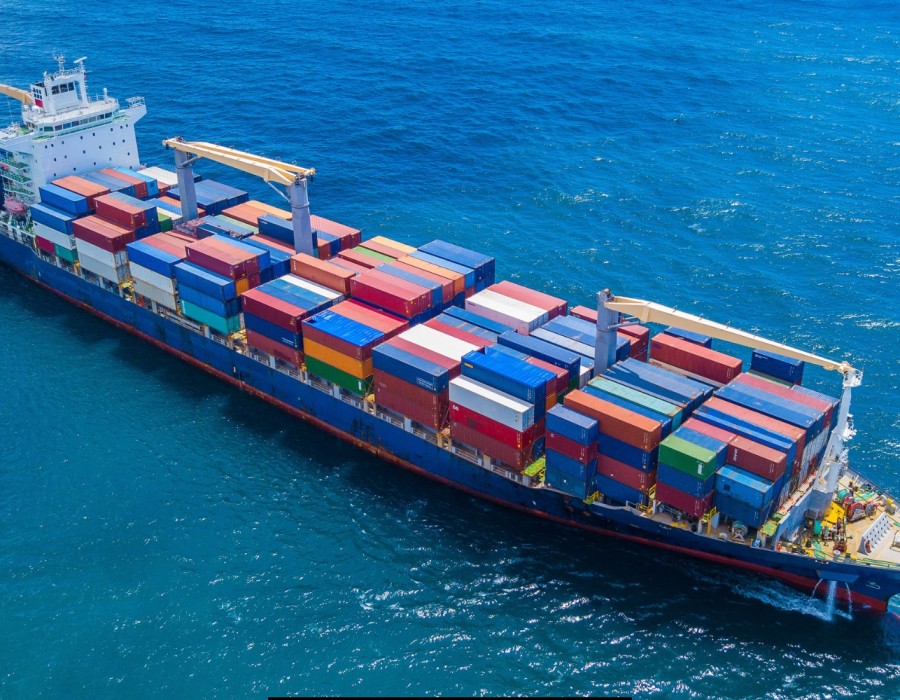Introduction:
Consider the large metal cabinets you see on trucks and ships. We refer to them as shipping containers. These shipping containers play a critical role in the global logistics chain. Items that we purchase from stores or the internet typically arrive in one of these boxes. Let's examine why shipping containers are so important to international trade in more detail.
The Evolution of Shipping Containers:
Let's travel back in time a little to see why shipping containers are so crucial to global trade now. Consider the late 1700s, when wooden crates were first used to carry goods for quicker transportation. But in the 1950s, a man by the name of Malcom McLean brought about a significant shift. He came up with this brilliant concept to convey goods much more efficiently. In 1956, McLean's business, Sea-Land Service, accomplished a ground-breaking feat. They used what are now known as shipping containers to send out the first load. This brought about a complete transformation in the global flow of goods. Ship loading and unloading used to be a pain, but with the advent of standardized containers and dedicated container ships, things have much improved.
Thus, shipping containers have a significant worldwide influence on the movement of commodities, all because of a clever man's creative invention from the 1950s.
Efficiency and Standardization:
Shipping containers are essential since they simplify the process of transferring furniture. Things used to have to be loaded and unloaded one at a time, but with containers, things go a lot more smoothly now. There are several sizes available, including the standard 40-foot and 20-foot ones as well as custom ones for items that must remain cold. Not only are these containers identical externally, but they are inside constructed in the same manner. This implies that regardless of whether they are on a truck, rail, or ship, they can support the same amount of weight and remain sturdy. Because everything is the same, businesses benefit greatly from time and cost savings as well as an improved global shipping procedure overall.
Global Connectivity and Trade Expansion:
Shipping containers play a critical role in facilitating global connectivity. They make the transfer of goods between distant locations easier. These containers are kept and transported around at large ports throughout the globe. Many of these containers come and go through locations like Shanghai and the Panama Canal, connecting producers with consumers throughout the globe.
The expansion of international trade is greatly aided by these containers. They make a wide range of markets accessible to enterprises that were previously inaccessible. Containerisation has facilitated international commerce and increased global economic integration by lowering transportation costs and simplifying the process of moving goods between nations.
Supply Chain Resilience and Adaptability:
Strong and adaptable supply networks are crucial in times of global uncertainty brought on by events like natural catastrophes, political unrest, and the spread of diseases. A key component of maintaining robust supply chains is shipping containers. They help keep things flowing even in times of crisis, like as COVID-19, because they are lightweight, durable boxes.
Because firms can swiftly adapt how they transfer their products based on global events, these containers are incredibly useful. For instance, they can produce extra and utilize the containers to transport the product to its destination if there is an unexpectedly high demand for it. Alternatively, they can swiftly identify an alternate path if there is an issue getting everything where it needs to go. This adaptability ensures that firms can continue to operate regardless of external circumstances, enabling them to persevere during difficult times.
Environmental Sustainability:
Amidst growing concerns about our environmental impact, shipping containers are being used to reduce pollution and minimize waste. Transporting goods in containers is more environmentally friendly than using traditional methods since it consumes less gasoline. This is due to the fact that ships may conserve fuel by transporting far more cargo in containers at once. Furthermore, shipping containers are durable and reusable. Containers can survive for over 20 years, in contrast to wooden crates or cardboard boxes that are discarded after only one usage! Additionally, they may be repurposed for homes or businesses when they eventually wear out, saving them from going to waste.
Technological Advancements and Digital Integration:
These days, the international shipping process depends heavily on large metal shipping containers. They serve as the hubs that link every component of the worldwide delivery system.
Modern technology, such as sensors, GPS trackers, and blockchain—a highly secure digital ledger—has made it much simpler to monitor where items are going and if they're safe. This reduces the possibility of items being lost or stolen.
Because everything is digitally connected, information can be shared quickly and simply amongst all parties engaged in the sending process. This ensures that everything goes without a hitch from beginning to end. With all of these clever devices and digital techniques, shipping and optimizing management decision-making is much more efficient. Furthermore, as technology advances, these shipping containers will become even more intelligent and networked, revolutionizing the way we move and manage our belongings.
Conclusion:
To put it plainly, shipping containers are crucial to international trade. They resemble the world's greatest moving superheroes. They began as simple metal boxes and have developed into important components in the transportation of commodities. Trade between nations has altered as a result of these containers. They facilitate cross-border commercial transactions, support robust supply chains, and even improve environmental outcomes by increasing transportation efficiency. Shipping containers will continue to be important in international trade as long as technology advances and we make better plans. They will continue to help people everywhere in the world progress and flourish.





Comments